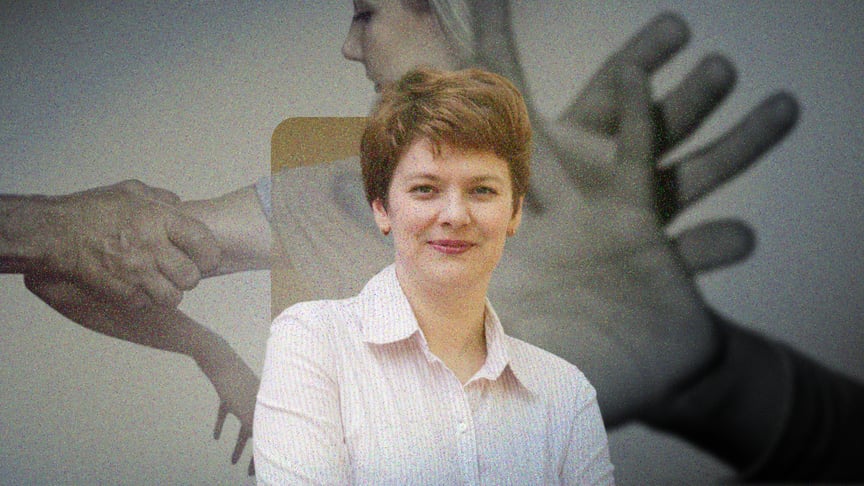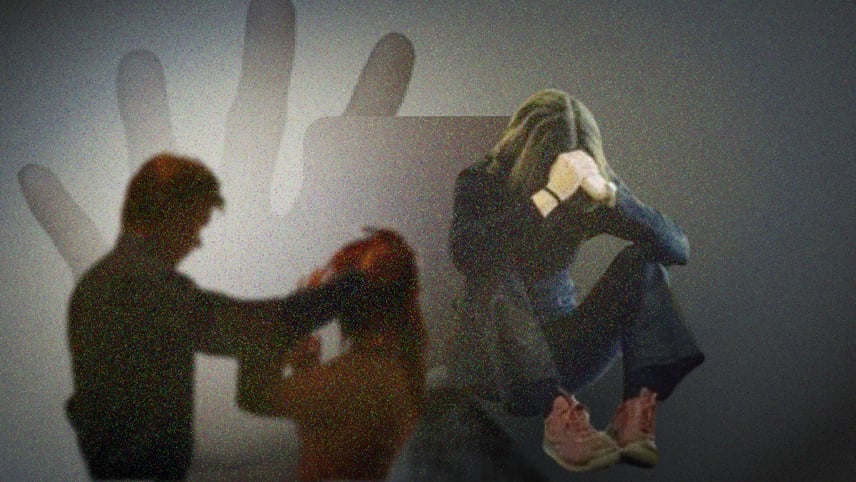"It's hardest when you can't help or it's too late." Why is violence against women increasing in Ukraine?

Ekaterina, do you see confirmation from the Office of the Prosecutor General's statistics that this year has surpassed previous years in terms of domestic violence cases? How often are calls made, particularly to your hotline?
The numbers reported by the Office of the Prosecutor General primarily reflect criminal proceedings. However, they can also indicate improvements in identification and response.
These numbers may vary from year to year, but they are indeed high. The issue of domestic violence remains significant in both peaceful times and during the pandemic, as well as in the context of war.
The number of calls only dropped in the initial months of the full-scale invasion. Nonetheless, domestic, gender-based, and violence against women did not disappear; it continued in bomb shelters and, undoubtedly, in occupied territories (although access to such information is nearly non-existent).
Last year, our 24-hour hotline received around 40,000 calls. A sad consistency is that 91% of these were related to domestic violence. In the first nine months of this year, we received nearly 33,000 calls, mostly from women.
When the numbers remain so high, despite millions of women and children having fled, it indicates that this is indeed a significant issue requiring attention and response.
You mentioned improvements in identification — do you mean that it's not so much an increase in cases, but rather that victims are speaking out more and reaching out to the appropriate services?
In fact, it is both. On one hand, there are indeed more services and more awareness that domestic violence is unacceptable, and that people should seek help, not be afraid, and not remain silent. But on the other hand, we are objectively observing an increase in domestic violence. Notably, there is a rise in such calls from families of military personnel or veterans.
However, some cases still go unreported. Often, the thought occurs: “How can I report this? He is a protector…” Or conversely, women are told: “How can you be ashamed? He is protecting you, and you are complaining.” There are many factors at play.
So can we say that the war influences the surge in domestic violence, particularly through PTSD?
Both PTSD and traumatic experiences in general. Additionally, it has certainly become more challenging to ensure an adequate response.
For instance, in frontline territories, this issue is not yet a priority. When women reach out, they may hear responses like: “Can’t you see that there’s a war in the country? Deal with your issues.”
Many services, shelters, and organizations have either been damaged or forced to relocate. On the other hand, regions that are accommodating a large number of internally displaced persons are not equipped to handle such a volume of requests, particularly regarding domestic violence. Moreover, the number of shelters does not meet the existing demand.
Can we say which type of violence is most commonly reported: physical, psychological, sexual, or economic?
The most frequently reported type is psychological violence. Psychological violence is present in almost every situation. Physical violence ranks second. However, the difference between the two is not significant; the percentage is quite small.
There are far fewer reports of economic violence, and even fewer regarding sexual violence. It's important to note that this is not because sexual violence is rare; rather, it’s that it is not easy to discuss. It is a very sensitive topic. Even less is said about sexual violence as a form of domestic violence.
Many don't even identify marital rape: “Well, that's a marital duty,” and so on. But in reality, even if there is a stamp in the passport, it is still sexual violence.
Have you received reports of sexual violence during the occupation?
Yes, we have received reports of sexual violence related to the conflict (SVRC). This is indeed a very serious issue. We have received calls on our hotline and provided assistance to victims. Reports have come from victims themselves, witnesses, and referrals from other organizations.
Regarding SVRC, it is often thought to only refer to rape. That if something happened that was not a sexual act (without penetration), it supposedly isn’t sexual violence. In reality, forced nudity, touching, and sexualized torture also qualify as sexual violence related to conflict.
For instance, we created a chatbot that not only provides information about what SVRC is but also allows users to connect with the hotline, receive consultations, or report such incidents through an electronic form. This can be done anonymously. With consent, that information can be forwarded to law enforcement, as many are afraid to reach out directly.

As a victim of psychological violence, I know how long and difficult it is to identify it. So I am truly surprised that the most reported type is psychological violence, not, for example, physical violence. I thought people only reached out in extreme situations.
In the overwhelming majority of cases, that is indeed true. It’s not that he yelled “You’re an idiot” just once, and then the person calls us. People generally reach out when the abuse has been ongoing for a long time: months, years. Unfortunately, we have cases where it has lasted nearly decades. For various reasons, individuals may remain in the relationship.
This is what I was referring to: it usually coexists. If there is physical violence, psychological violence will also be present. Because, in any case, the person will be scared; they may be intimidated by the threat of physical violence. This has a significant psychological impact.
Can you explain to those who may not identify it: how does psychological or economic violence manifest? Because physical violence is somewhat clearer.
I will say that not all manifestations of physical violence are easily identifiable. For example, slaps, pushing, or pulling hair — it's unlikely that if we ask an average person on the street, they would say that it is physical violence. But these are all components.
For instance, a serious indicator of violence is (according to international standards) when someone is grabbed by the throat. This may not mean strangulation but can signify intimidation along with psychological pressure. It is believed that if the abuser allows themselves to do this, it poses a serious risk of escalating to fatal outcomes.
Economic violence is also not always identified. This includes restricting access to property, resources, finances, and real estate. It can manifest as a prohibition on working, often framed as a form of care and love, such as: “I will provide for you, and you don’t need to do anything, just take care of the family.” But in reality, this minimizes or completely removes financial independence.
During this time, professional contacts may sever, work experience may be lost, and social support diminishes. This creates a form of isolation. If any violence or even the risk of it occurs, the person is effectively deprived of their source of economic independence. This is a very serious factor of influence.
Psychological violence includes humiliation, devaluation, and intimidation of the person themselves as well as their immediate surroundings.
It could be a single instance of serious physical violence — for example, being beaten once. But, for instance, being reminded: “Do you remember what happened when you came home late or undercooked the meal? If anything like that happens again, the same will occur.” This too is an element of intimidation and psychological pressure.
Threats of taking away children, causing harm to loved ones, or even pets are also common. This often lasts for a long time — you are constantly told: “You are not worth anything, you mean nothing,” and it just keeps accumulating… No matter how resilient and stable a person’s psyche is, this will have an impact. Especially if isolation occurs and it’s hard to find someone to turn to for help.
Are there any stories from the period of the full-scale war that have affected you the most (if, of course, you can share them)?
In fact, every story resonates. Because it is the life of a specific individual. I believe that each of us has, in a literal sense, encountered such experiences, either personally or concerning a loved one, or have observed it within our close circles.
The most challenging situations have been when people reached out while they were in occupied territories. You truly feel powerless.
The first report of sexual violence related to the conflict came from the occupied territory of the Kherson region. And you realize that aside from moral, emotional, and psychological support and some basic advice that could be offered in such situations, there is nothing else. Because the police won’t come there.
The hardest part is when you can’t help. Or when it’s already too late. Such cases do exist. When someone reaches out repeatedly… And at some point of inaction, when the police don’t respond after 15 calls, it can lead to fatal outcomes. To the death of the victim — or the victim